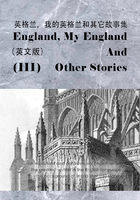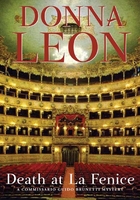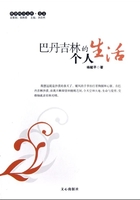'By the soft green light in the woody glade,
On the banks of moss where thy childhood played;
By the household tree, thro' which thine eye
First looked in love to the summer sky.'
MRS. HEMANS.
Margaret was once more in her morning dress, travelling quietly home with her father, who had come up to assist at the wedding. Her mother had been detained at home by a multitude of half-reasons, none of which anybody fully understood, except Mr. Hale, who was perfectly aware that all his arguments in favour of a grey satin gown, which was midway between oldness and newness, had proved unavailing; and that, as he had not the money to equip his wife afresh, from top to toe, she would not show herself at her only sister's only child's wedding. If Mrs. Shaw had guessed at the real reason why Mrs. Hale did not accompany her husband, she would have showered down gowns upon her; but it was nearly twenty years since Mrs. Shaw had been the poor, pretty Miss Beresford, and she had really forgotten all grievances except that of the unhappiness arising from disparity of age in married life, on which she could descant by the half-hour. Dearest Maria had married the man of her heart, only eight years older than herself, with the sweetest temper, and that blue-black hair one so seldom sees. Mr. Hale was one of the most delightful preachers she had ever heard, and a perfect model of a parish priest. Perhaps it was not quite a logical deduction from all these premises, but it was still Mrs. Shaw's characteristic conclusion, as she thought over her sister's lot: 'Married for love, what can dearest Maria have to wish for in this world?' Mrs. Hale, if she spoke truth, might have answered with a ready-made list, 'a silver-grey glace silk, a white chip bonnet, oh! dozens of things for the wedding, and hundreds of things for the house.' Margaret only knew that her mother had not found it convenient to come, and she was not sorry to think that their meeting and greeting would take place at Helstone parsonage, rather than, during the confusion of the last two or three days, in the house in Harley Street, where she herself had had to play the part of Figaro, and was wanted everywhere at one and the same time. Her mind and body ached now with the recollection of all she had done and said within the last forty-eight hours. The farewells so hurriedly taken, amongst all the other good-byes, of those she had lived with so long, oppressed her now with a sad regret for the times that were no more; it did not signify what those times had been, they were gone never to return. Margaret's heart felt more heavy than she could ever have thought it possible in going to her own dear home, the place and the life she had longed for for years—at that time of all times for yearning and longing, just before the sharp senses lose their outlines in sleep. She took her mind away with a wrench from the recollection of the past to the bright serene contemplation of the hopeful future. Her eyes began to see, not visions of what had been, but the sight actually before her; her dear father leaning back asleep in the railway carriage. His blue-black hair was grey now, and lay thinly over his brows. The bones of his face were plainly to be seen—too plainly for beauty, if his features had been less finely cut; as it was, they had a grace if not a comeliness of their own. The face was in repose; but it was rather rest after weariness, than the serene calm of the countenance of one who led a placid, contented life. Margaret was painfully struck by the worn, anxious expression; and she went back over the open and avowed circumstances of her father's life, to find the cause for the lines that spoke so plainly of habitual distress and depression.
'Poor Frederick!' thought she, sighing. 'Oh! if Frederick had but been a clergyman, instead of going into the navy, and being lost to us all! I wish I knew all about it. I never understood it from Aunt Shaw; I only knew he could not come back to England because of that terrible affair. Poor dear papa! how sad he looks! I am so glad I am going home, to be at hand to comfort him and mamma.
She was ready with a bright smile, in which there was not a trace of fatigue, to greet her father when he awakened. He smiled back again, but faintly, as if it were an unusual exertion. His face returned into its lines of habitual anxiety. He had a trick of half-opening his mouth as if to speak, which constantly unsettled the form of the lips, and gave the face an undecided expression. But he had the same large, soft eyes as his daughter,—eyes which moved slowly and almost grandly round in their orbits, and were well veiled by their transparent white eyelids. Margaret was more like him than like her mother. Sometimes people wondered that parents so handsome should have a daughter who was so far from regularly beautiful; not beautiful at all, was occasionally said. Her mouth was wide; no rosebud that could only open just' enough to let out a 'yes' and 'no,' and 'an't please you, sir.' But the wide mouth was one soft curve of rich red lips; and the skin, if not white and fair, was of an ivory smoothness and delicacy. If the look on her face was, in general, too dignified and reserved for one so young, now, talking to her father, it was bright as the morning,—full of dimples, and glances that spoke of childish gladness, and boundless hope in the future.
It was the latter part of July when Margaret returned home. The forest trees were all one dark, full, dusky green; the fern below them caught all the slanting sunbeams; the weather was sultry and broodingly still. Margaret used to tramp along by her father's side, crushing down the fern with a cruel glee, as she felt it yield under her light foot, and send up the fragrance peculiar to it,—out on the broad commons into the warm scented light, seeing multitudes of wild, free, living creatures, revelling in the sunshine, and the herbs and flowers it called forth. This life—at least these walks—realised all Margaret's anticipations. She took a pride in her forest. Its people were her people. She made hearty friends with them; learned and delighted in using their peculiar words; took up her freedom amongst them; nursed their babies; talked or read with slow distinctness to their old people; carried dainty messes to their sick; resolved before long to teach at the school, where her father went every day as to an appointed task, but she was continually tempted off to go and see some individual friend—man, woman, or child—in some cottage in the green shade of the forest. Her out-of-doors life was perfect. Her in-doors life had its drawbacks. With the healthy shame of a child, she blamed herself for her keenness of sight, in perceiving that all was not as it should be there. Her mother—her mother always so kind and tender towards her—seemed now and then so much discontented with their situation; thought that the bishop strangely neglected his episcopal duties, in not giving Mr. Hale a better living; and almost reproached her husband because he could not bring himself to say that he wished to leave the parish, and undertake the charge of a larger. He would sigh aloud as he answered, that if he could do what he ought in little Helstone, he should be thankful; but every day he was more overpowered; the world became more bewildering. At each repeated urgency of his wife, that he would put himself in the way of seeking some preferment, Margaret saw that her father shrank more and more; and she strove at such times to reconcile her mother to Helstone. Mrs. Hale said that the near neighbourhood of so many trees affected her health; and Margaret would try to tempt her forth on to the beautiful, broad, upland, sun-streaked, cloud-shadowed common; for she was sure that her mother had accustomed herself too much to an in-doors life, seldom extending her walks beyond the church, the school, and the neighbouring cottages. This did good for a time; but when the autumn drew on, and the weather became more changeable, her mother's idea of the unhealthiness of the place increased; and she repined even more frequently that her husband, who was more learned than Mr. Hume, a better parish priest than Mr. Houldsworth, should not have met with the preferment that these two former neighbours of theirs had done.
This marring of the peace of home, by long hours of discontent, was what Margaret was unprepared for. She knew, and had rather revelled in the idea, that she should have to give up many luxuries, which had only been troubles and trammels to her freedom in Harley Street. Her keen enjoyment of every sensuous pleasure, was balanced finely, if not overbalanced, by her conscious pride in being able to do without them all, if need were. But the cloud never comes in that quarter of the horizon from which we watch for it. There had been slight complaints and passing regrets on her mother's part, over some trifle connected with Helstone, and her father's position there, when Margaret had been spending her holidays at home before; but in the general happiness of the recollection of those times, she had forgotten the small details which were not so pleasant. In the latter half of September, the autumnal rains and storms came on, and Margaret was obliged to remain more in the house than she had hitherto done. Helstone was at some distance from any neighbours of their own standard of cultivation.
'It is undoubtedly one of the most out-of-the-way places in England,' said Mrs. Hale, in one of her plaintive moods. 'I can't help regretting constantly that papa has really no one to associate with here; he is so thrown away; seeing no one but farmers and labourers from week's end to week's end. If we only lived at the other side of the parish, it would be something; there we should be almost within walking distance of the Stansfields; certainly the Gormans would be within a walk.'
'Gormans,' said Margaret. 'Are those the Gormans who made their fortunes in trade at Southampton? Oh! I'm glad we don't visit them. I don't like shoppy people. I think we are far better off, knowing only cottagers and labourers, and people without pretence.'
'You must not be so fastidious, Margaret, dear!' said her mother, secretly thinking of a young and handsome Mr. Gorman whom she had once met at Mr. Hume's.
'No! I call mine a very comprehensive taste; I like all people whose occupations have to do with land; I like soldiers and sailors, and the three learned professions, as they call them. I'm sure you don't want me to admire butchers and bakers, and candlestick-makers, do you, mamma?'
'But the Gormans were neither butchers nor bakers, but very respectable coach-builders.'
'Very well. Coach-building is a trade all the same, and I think a much more useless one than that of butchers or bakers. Oh! how tired I used to be of the drives every day in Aunt Shaw's carriage, and how I longed to walk!'
And walk Margaret did, in spite of the weather. She was so happy out of doors, at her father's side, that she almost danced; and with the soft violence of the west wind behind her, as she crossed some heath, she seemed to be borne onwards, as lightly and easily as the fallen leaf that was wafted along by the autumnal breeze. But the evenings were rather difficult to fill up agreeably. Immediately after tea her father withdrew into his small library, and she and her mother were left alone. Mrs. Hale had never cared much for books, and had discouraged her husband, very early in their married life, in his desire of reading aloud to her, while she worked. At one time they had tried backgammon as a resource; but as Mr. Hale grew to take an increasing interest in his school and his parishioners, he found that the interruptions which arose out of these duties were regarded as hardships by his wife, not to be accepted as the natural conditions of his profession, but to be regretted and struggled against by her as they severally arose. So he withdrew, while the children were yet young, into his library, to spend his evenings (if he were at home), in reading the speculative and metaphysical books which were his delight.
When Margaret had been here before, she had brought down with her a great box of books, recommended by masters or governess, and had found the summer's day all too short to get through the reading she had to do before her return to town. Now there were only the well-bound little-read English Classics, which were weeded out of her father's library to fill up the small book-shelves in the drawing-room. Thomson's Seasons, Hayley's Cowper, Middleton's Cicero, were by far the lightest, newest, and most amusing. The book-shelves did not afford much resource. Margaret told her mother every particular of her London life, to all of which Mrs. Hale listened with interest, sometimes amused and questioning, at others a little inclined to compare her sister's circumstances of ease and comfort with the narrower means at Helstone vicarage. On such evenings Margaret was apt to stop talking rather abruptly, and listen to the drip-drip of the rain upon the leads of the little bow-window. Once or twice Margaret found herself mechanically counting the repetition of the monotonous sound, while she wondered if she might venture to put a question on a subject very near to her heart, and ask where Frederick was now; what he was doing; how long it was since they had heard from him. But a consciousness that her mother's delicate health, and positive dislike to Helstone, all dated from the time of the mutiny in which Frederick had been engaged,—the full account of which Margaret had never heard, and which now seemed doomed to be buried in sad oblivion,—made her pause and turn away from the subject each time she approached it. When she was with her mother, her father seemed the best person to apply to for information; and when with him, she thought that she could speak more easily to her mother. Probably there was nothing much to be heard that was new. In one of the letters she had received before leaving Harley Street, her father had told her that they had heard from Frederick; he was still at Rio, and very well in health, and sent his best love to her; which was dry bones, but not the living intelligence she longed for. Frederick was always spoken of, in the rare times when his name was mentioned, as 'Poor Frederick.' His room was kept exactly as he had left it; and was regularly dusted, and put into order by Dixon, Mrs. Hale's maid, who touched no other part of the household work, but always remembered the day when she had been engaged by Lady Beresford as ladies' maid to Sir John's wards, the pretty Miss Beresfords, the belles of Rutlandshire. Dixon had always considered Mr. Hale as the blight which had fallen upon her young lady's prospects in life. If Miss Beresford had not been in such a hurry to marry a poor country clergyman, there was no knowing what she might not have become. But Dixon was too loyal to desert her in her affliction and downfall (alias her married life). She remained with her, and was devoted to her interests; always considering herself as the good and protecting fairy, whose duty it was to baffle the malignant giant, Mr. Hale. Master Frederick had been her favorite and pride; and it was with a little softening of her dignified look and manner, that she went in weekly to arrange the chamber as carefully as if he might be coming home that very evening. Margaret could not help believing that there had been some late intelligence of Frederick, unknown to her mother, which was making her father anxious and uneasy. Mrs. Hale did not seem to perceive any alteration in her husband's looks or ways. His spirits were always tender and gentle, readily affected by any small piece of intelligence concerning the welfare of others. He would be depressed for many days after witnessing a death-bed, or hearing of any crime. But now Margaret noticed an absence of mind, as if his thoughts were pre-occupied by some subject, the oppression of which could not be relieved by any daily action, such as comforting the survivors, or teaching at the school in hope of lessening the evils in the generation to come. Mr. Hale did not go out among his parishioners as much as usual; he was more shut up in his study; was anxious for the village postman, whose summons to the house-hold was a rap on the back-kitchen window-shutter—a signal which at one time had often to be repeated before any one was sufficiently alive to the hour of the day to understand what it was, and attend to him. Now Mr. Hale loitered about the garden if the morning was fine, and if not, stood dreamily by the study window until the postman had called, or gone down the lane, giving a half-respectful, half-confidential shake of the head to the parson, who watched him away beyond the sweet-briar hedge, and past the great arbutus, before he turned into the room to begin his day's work, with all the signs of a heavy heart and an occupied mind.
But Margaret was at an age when any apprehension, not absolutely based on a knowledge of facts, is easily banished for a time by a bright sunny day, or some happy outward circumstance. And when the brilliant fourteen fine days of October came on, her cares were all blown away as lightly as thistledown, and she thought of nothing but the glories of the forest. The fern-harvest was over, and now that the rain was gone, many a deep glade was accessible, into which Margaret had only peeped in July and August weather. She had learnt drawing with Edith; and she had sufficiently regretted, during the gloom of the bad weather, her idle revelling in the beauty of the woodlands while it had yet been fine, to make her determined to sketch what she could before winter fairly set in. Accordingly, she was busy preparing her board one morning, when Sarah, the housemaid, threw wide open the drawing-room door and announced, 'Mr. Henry Lennox.'














